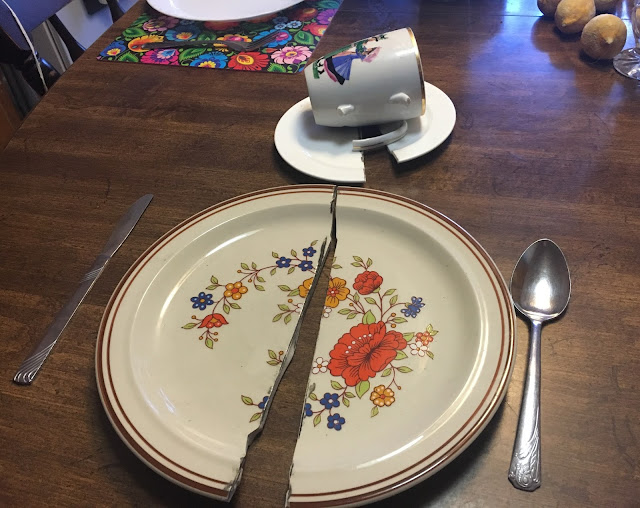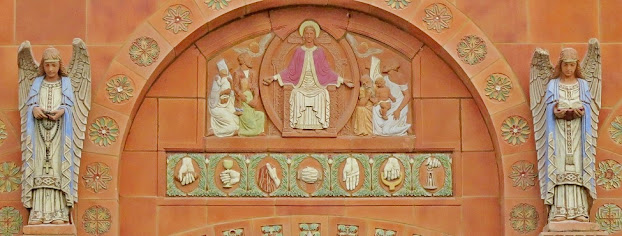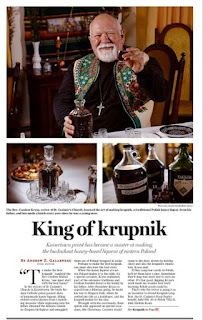Heaven Door Outreach -- VID 15
An extra place, a broken cup -- VID 15
Catholics often overlook
two basic principles of Biblical life. First,
fasting means decreasing (not eliminating) food intake, something which has
atrophied into only two days a year: Ash Wednesday and Good Friday. It seems to
be a strange math lab-measuring: eating one full meal and two others which
together cannot equal a second full meal.
Secondly, fasting is
always practiced in relationship to a feast.
Otherwise, fasting on its own, can be more like a weight-loss program
than a spiritual exercise. There are
times when our health requires us to lose weight. Lent, however, is primarily a time to fast
before the great feast of the Resurrection. The Apostles, as recorded in Acts, first
experienced the resurrected Jesus during fifty days of eating and drinking Him,
a time we now call the Easter Season.
Fasting before the Feast does not mean making up for what we will gige up during the forty days of Lent. It is not “pigging out” at the feast on what we enjoy and gave up. However, when we share the Fruits of our Fast with needy families, we approach the feast lightened up in body and spirit and more appreciative of God’s bountiful gifts. Appreciation is expressed in the practice of sharing the "fruits of the fast" with needy families. Summing up what was saved on downsized meals, putting aside money when skipping restaurant dining, or adding up the monetary value of favorites we denied ourselves are all ways to share with those in need. Donating the above funds to a local food pantry is the way we recognize and serve Jesus in persons in need. Fasting for many of them is a lifestyle. For most of us it's a free choice. Some of their lives are broken, like the dish and/or cup of the empty place setting (note intro pic above).
A fully liberated person lightens their own burden, their food intake, recognize Jesus as true food, the Bread of Life, and serves Him freely in the corporal Works of Mercy (pic below of the terracotta lintel over the main or Social Justice Entrance to the Church of St Casimir, Prince of the Poor, Buffalo, NY. In order from l-r feed the hungry, give drink to the thirsty, clothe the naked, visit the imprisoned, welcome/shelter the homeless, bury the dead, visit the sick).
Gratitude in the Holy
Spirit is first expressed as we end the fast at the Eucharistic Feast (the word
Eucharist means thanksgiving), the bounty of which is so great it extends into
the home. For this reason, some families bring Easter food for a blessing on Holy Saturday, in what is also called a food
basket blessing. Having set aside
favorites, snacks, candies, beer or other alcoholic beverages; the overflow of downsized
Lenten meals become a gift to the needy.
Needy families, therein, symbolically join in the Easter feast of the
believer’s table.
Traditionally there is a
four-fold dimension of a Catholic celebration fast: 1) Limiting food intake, 2)
Giving up favorites, 3) Joyfully looking forward to the Easter “break-fast” or
the Holy Eucharist, and 4) Sharing the “fruits of the fast” with the less
fortunate. The interplay of these four
elements gives a fuller, spiritual meaning to fasting in the Christian family.
For the Baptized, Holy
Communion, breaks every faith fast, a true “Breakfast of Believers.” More so, this Communion extends into each Catholic
home through a significant, holyday meal, once called a “love feast” or agapé.
Rooted in Easter, Sunday’s weekly
commemorations of the Resurrection were called the Lord’s Day and centered in
the Lord’s Supper, the earliest name for Mass.
This was the Sunday of a believer, even during the first four centuries
when Sunday was a workday. In the
Christian homes, the power of Lord’s Sunday Supper transformed daily meals.
St Paul in his Letter to
the Corinthians elucidates the twofold dimension of “recognizing the Body" [of
Jesus] at the Lord’s Supper and partaking worthily. He refers to active awareness of Jesus’ presence
in the Eucharist itself (a communion in the Body and Blood of Christ) binding
the Lord’s Supper with recognizing the Lord in the poor and needy (1Cor 10 and
11). A traditional and full experience
of the Lord’s Supper must never
overlook the place of the world’s needy. As St John Paul taught, “our mutual love and, in
particular, by our concern for those in need, we will be recognized as true
followers of Christ. This will be the
criterion by which the authenticity of our Eucharistic celebrations are
judged.”
Jesus himself proclaimed
the role needy, less fortunate, and homeless people have in the life of
believers with words so powerful they were put to music: “Whatsoever you do to
the least of my people, that you do unto me.”
The need of a stranger reveals
God’s will to us. Page by page, Fr Dan
Honan and Lonni Colling Pratt reveal this evangelical mystery in the multitude
of experiences contained in their riveting book, Radical Hospitality
(Paraclete Press: Brewster Massachusetts, 2002).
Fundamentally, the above
authors expose how God is more fully present in the unexpected surprises or
derailments of our life than in our well laid out personal plans. The radical nature of Christian hospitality
is an ability to be attentive and respond, not necessarily to correct or fix
all, such “upsets.” The book’s
popularity spread in 2005 with an accompanying discussion guide with the same
title.
Consult Heaven Door Outreach Vid 15 https://www.youtube.com/watch?v=5S7Ch6uuZeY
All video and textual content of St Casimir’s Series on the Domestic Church and Tandem Blog Articles © CzMKrysa, Buffalo, NY April-August 2020
Above photo: Social Justice Entrance. St Casimir, Prince of the Poor, distributes alms and bread to needy families, homebound seniors, and street kids. Church of St Casimir, Buffalo, NY.




Comments
Post a Comment